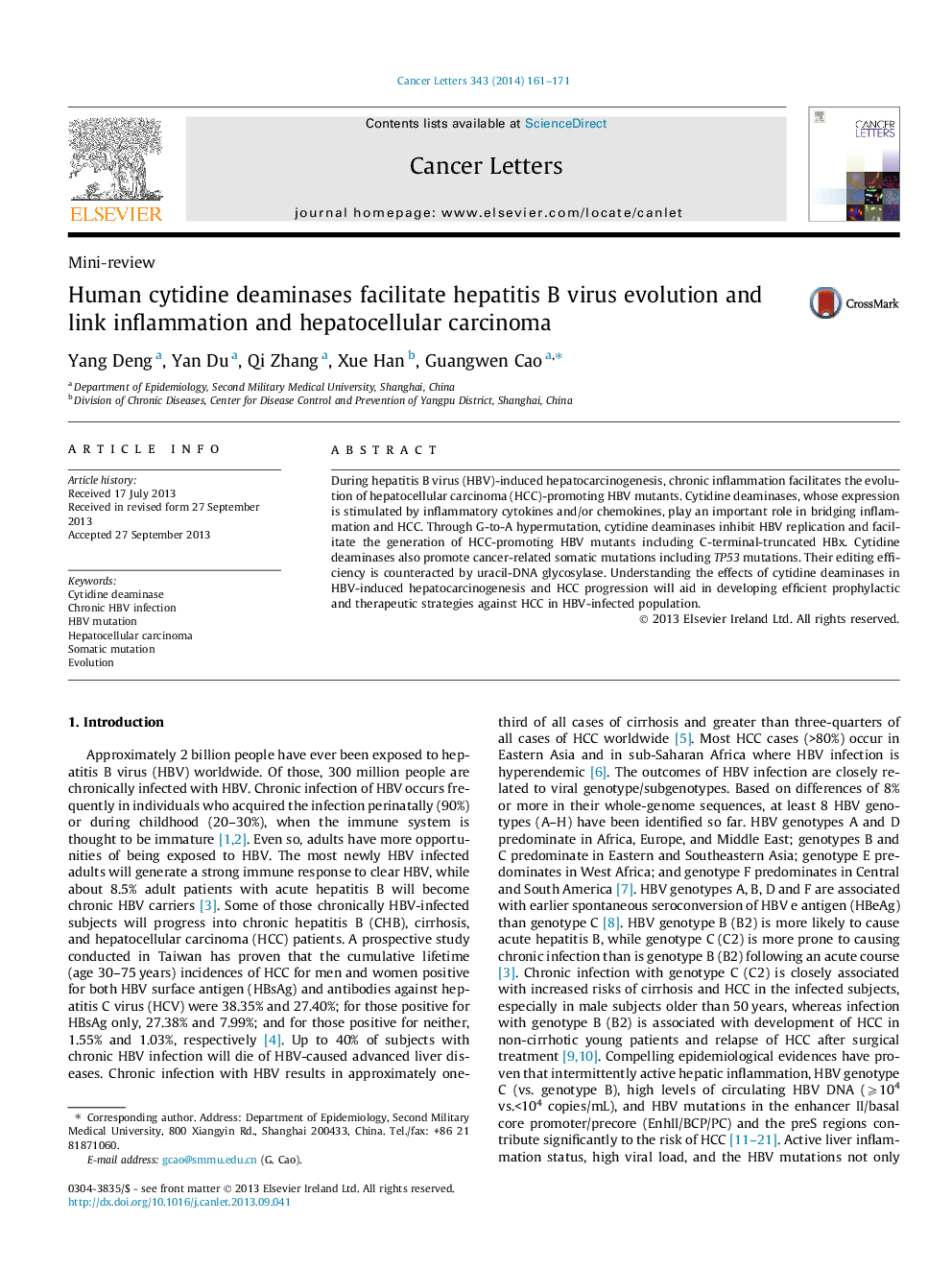| Article ID | Journal | Published Year | Pages | File Type |
|---|---|---|---|---|
| 10899803 | Cancer Letters | 2014 | 11 Pages |
Abstract
During hepatitis B virus (HBV)-induced hepatocarcinogenesis, chronic inflammation facilitates the evolution of hepatocellular carcinoma (HCC)-promoting HBV mutants. Cytidine deaminases, whose expression is stimulated by inflammatory cytokines and/or chemokines, play an important role in bridging inflammation and HCC. Through G-to-A hypermutation, cytidine deaminases inhibit HBV replication and facilitate the generation of HCC-promoting HBV mutants including C-terminal-truncated HBx. Cytidine deaminases also promote cancer-related somatic mutations including TP53 mutations. Their editing efficiency is counteracted by uracil-DNA glycosylase. Understanding the effects of cytidine deaminases in HBV-induced hepatocarcinogenesis and HCC progression will aid in developing efficient prophylactic and therapeutic strategies against HCC in HBV-infected population.
Related Topics
Life Sciences
Biochemistry, Genetics and Molecular Biology
Cancer Research
Authors
Yang Deng, Yan Du, Qi Zhang, Xue Han, Guangwen Cao,
